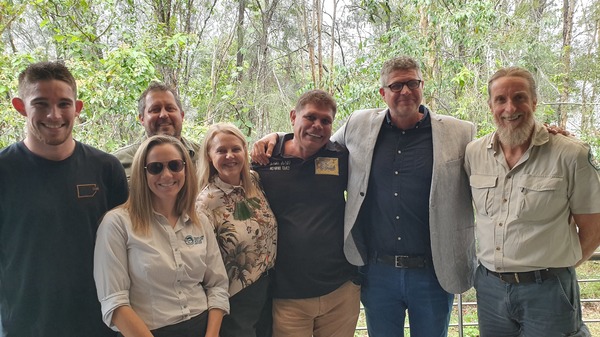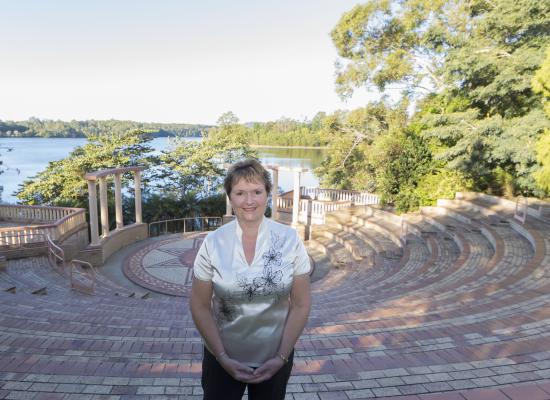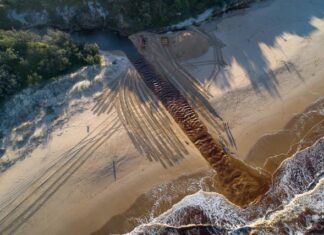Noosa Greens spokeswoman has called out the Cooloola Great Walk Ecotourism Project as “another attack on our wilderness areas”.
The Noosa and Hinterland/Wide Bay Branch of Queensland Greens spokeswoman Rhonda Prescott said it was somewhat disturbing the Queensland Government awarded the tender for this project – the first in the state for an ecotourism venture in a National Park – to a firm which specialises in eco-cabins on vehicle-accessible rural properties, not in National Parks and fragile high-value ecosystems.
“Initial publicity about the Cooloola Great Walk Ecotourism Project suggested tiny glamping-style tents complementing the Great Walk. Impacts on the environment, we were assured, would be minimal,” Ms Prescott said.
“Now that the community consultation and information phase of the project has ended, it’s clear that the reality will be quite different. Out of five campsites selected, three will have six smallish so-called eco-tents and a communal tent. “The other two, located near Lake Poona and below the lighthouse on Double Island Point, will have 10 much larger cabins and a communal structure. Each site is on average half a hectare in size. New roads and walking tracks will be required.”
Ms Prescott said all this meant environmental impacts would be considerably greater than implied in the early publicity.
“The consultation exercise has been inadequate, with many unanswered questions,” she said.
“Basic information is lacking on crucial issues – the number of vehicle movements in areas which now see very few, the amount of revenue which flows back to the State Government, the impact of the proposal on current low-impact visitors, and the possibility of a massive expansion of the project in the future.”
The tender for the project was awarded to CABN, Australian experts in eco-friendly, off-grid, nature-based experiences.
CABN chief executive officer Michael Lamprell said there was a period of community consultation in the Noosa, Cooloola and Gympie regions including forums, industry roundtables, pop-up stalls and interviews with key stakeholders, interest groups and community members throughout June 2021.
“It is our priority to ensure infrastructure has as minimal impact as possible, designing accommodation specifically on site with Traditional Owners, Queensland Government and our architects,” he said.
“Detailed assessments have been done to identify and mitigate any potential impacts on the historic and Aboriginal cultural heritage ecology, hydrology and wildlife in this culturally and ecologically important region.”
Mr Lamprell said the project would provide small-scale low-impact nature-based eco-accommodation within the National Park, complementing ongoing public use and preservation of the natural and cultural values of these areas.
“In acknowledgement of the First Nations Kabi Kabi People’s deep connection with Country, all aspects of the project are being progressed in close engagement and aims to maximise benefits to Kabi Kabi People, including employment, training, business opportunities and presentation and promotion of their unique cultural heritage,” he said.
“As part of the tourism experience, regional businesses in the Cooloola, Gympie and Noosa areas will benefit from ongoing supply of goods and services, supporting the ecotourism experience. The product will not affect current visitors.”









